Related Research Articles
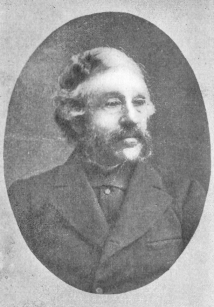
George James Webb was an English-born American composer, conductor, music educator, and organist. He was known for writing "Stand Up, Stand Up for Jesus". Webb composed the hymn-tune known as "Webb" whilst sailing from England to the United States: the tune is also known as "Morning Light".

Horatio William Parker was an American composer, organist and teacher. He was a central figure in musical life in New Haven, Connecticut in the late 19th century, and is best remembered as the undergraduate teacher of Charles Ives while the composer attended Yale University.

Lowell Mason was an American music director and banker who was a leading figure in 19th-century American church music. Lowell composed over 1,600 hymn tunes, many of which are often sung today. His best-known work includes an arrangement of "Joy to the World" and the tune Bethany, which sets the hymn text Nearer, My God, to Thee. Mason also set music to Mary Had A Little Lamb. He is largely credited with introducing music into American public schools, and is considered the first important U.S. music educator. He has also been criticized for helping to largely eliminate the robust tradition of participatory sacred music that flourished in North America before his time.

Charles Jared Ingersoll was an American lawyer, writer and politician who served as a Democratic member of the U.S. House of Representatives for Pennsylvania's 1st congressional district from 1813 to 1815, Pennsylvania's 3rd congressional district from 1841 to 1843 and Pennsylvania's 4th congressional district from 1843 to 1849. He served as a member of the Pennsylvania House of Representatives in 1830.
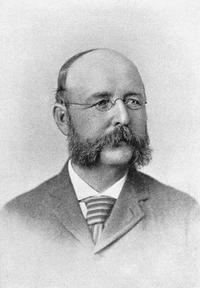
John Knowles Paine was the first American-born composer to achieve fame for large-scale orchestral music. The senior member of a group of composers collectively known as the Boston Six, Paine was one of those responsible for the first significant body of concert music by composers from the United States. The Boston Six's other five members were Amy Beach, Arthur Foote, Edward MacDowell, George Chadwick, and Horatio Parker.
Samuel Parkman Tuckerman was an American composer.

The Handel and Haydn Society is an American chorus and period instrument orchestra based in Boston, Massachusetts. Known colloquially as 'H+H', the organization has been in continual performance since its founding in 1815, the longest serving such performing arts organization in the United States.

Samuel Atkins Eliot was a member of the notable Eliot family of Boston, Massachusetts, who served in political positions at the local, state and national levels.
Henry Wellington Greatorex was an English-American musician.

Carl Bergmann was a German-American cellist and conductor.
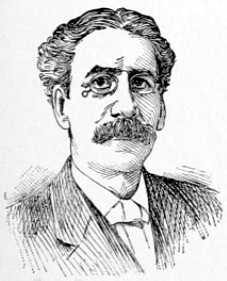
James Cutler Dunn Parker was an American organist, educator and composer.

Thomas Burt Dunn was an American musician, conductor and music editor known for his performances of Baroque music. He is considered an important figure in the development of the 20th-century early music revival and adoption of historically informed performance practices in the United States.

Charles Edward Horn was an English composer and singer.
Samuel Hale Parker (1781–1864) was a publisher and bookseller in 19th-century Boston, Massachusetts, United States. He published musical scores as well as novels, sermons, and other titles. He operated the Boston Circulating Library, and was among the founders of the Handel and Haydn Society.
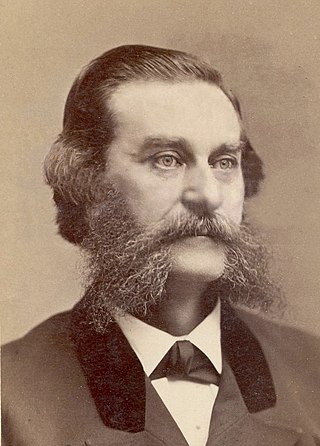
Carl Zerrahn was a German-born American flautist and conductor. His widespread activity in the region made him an influential figure in New England and Boston classical music, especially choral music, in the latter half of the 19th century. He was especially successful in the presentation of the great oratorios and the management of large choruses.
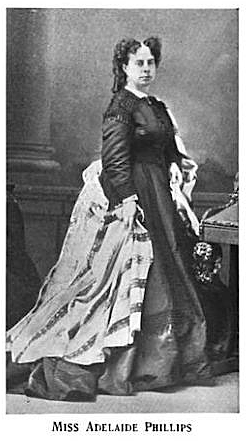
Adelaide Phillipps was an Anglo-American opera singer and actress who became one of America's most admired contraltos of the Victorian era.
John Edward Goodson was a 19th-century North American classical music educator, performer, composer, and conductor. Goodson, a highly skilled pianist and organist, was born and raised in London, England, and received his early education at the St. Paul's Cathedral School. The son of a London shoemaker, he fled the cholera epidemic of 1832–33 and emigrated to York, Upper Canada. After immigrating to the United States, he met Ralph Waldo Emerson while living and teaching music in Cincinnati, and was eventually lured to Boston by Emerson for a brief time. It was during this time that Goodson became the conductor of the Handel and Haydn Society. He was also mentioned in Emerson's notes about forming a "Boston Club" along with Nathaniel Hawthorne and Bronson Alcott. After leaving Boston in 1852, he lived out most of the remainder of his days in St. Louis, Missouri, continuing to teach music and also continuing to write and perform publicly. While unproven, it has been passed down within the family that Goodson was a direct descendant of Vice-Admiral William Goodson, one of Oliver Cromwell's Admirals during the Protectorate. It is quite possible that the memoirs of his Grandfather, William Goodson of Waddesdon, Buckinghamshire, may shed some more light on it.

Myron William Whitney was an American bass opera singer.
Peter K. Moran [P. K. Moran] was an Irish pianist, composer, and music publisher – probably the earliest classical composer from Ireland to emigrate to the United States.
Sophia Hewitt Ostinelli (1799-1845) was an American classical musician who was a child prodigy who later became the only woman ever employed as an organist and accompanist by the Handel and Haydn Society in Boston, Massachusetts. She also became the second musician ever to perform the music of Beethoven in Boston.
References
General references
This article includes a list of references, related reading, or external links, but its sources remain unclear because it lacks inline citations .(May 2013) |
- This article incorporates text from a publication now in the public domain : Wilson, J. G.; Fiske, J., eds. (1889). . Appletons' Cyclopædia of American Biography . New York: D. Appleton.
- Strunk, Oliver (1936). "Zeuner, Charles". Dictionary of American Biography . New York: Charles Scribner's Sons.
- Clark, J. Bunker (1999). "Zeuner, Charles". American National Biography (online ed.). New York: Oxford University Press. doi:10.1093/anb/9780198606697.article.1801282.(subscription required)